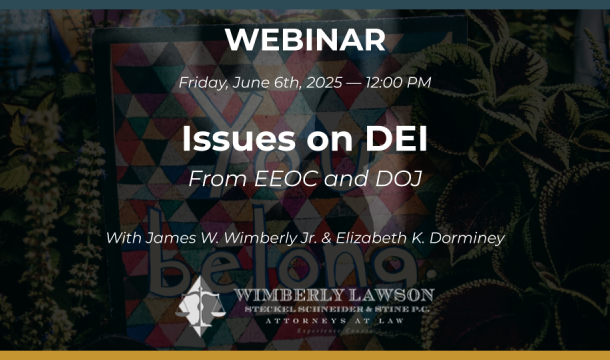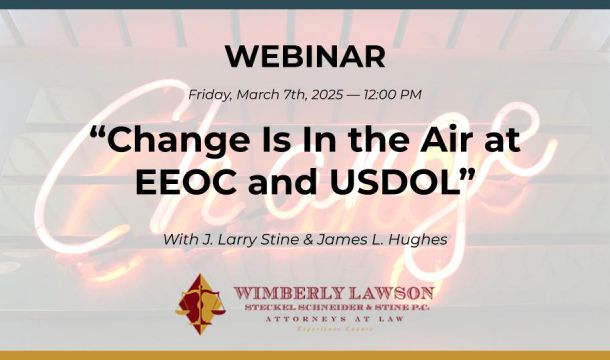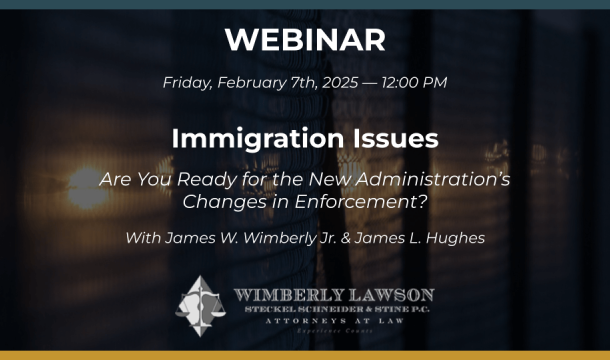Last Day to File for Refund of Paid Leave and Employee Retention Tax Credits
The March 2020 CARES Act allows employers to reduce their quarterly federal employment tax deposit obligations in certain situations. For example, if an employer is entitled to a credit of $5,000 for (a) qualified sick leave wages, (b) certain related health plan expenses, and (c) the employer’s share of Medicare tax on the leave wages, and if the employer is otherwise required to deposit $8,000 in employment taxes, the employer could reduce its federal employment tax deposits by $5,000. The employer would only be required to deposit the remaining $3,000 on its next regular deposit date. As another example, if an employer is entitled to an employee retention credit of $10,000 and was required to deposit $8,000 in employment taxes, the employer could retain the entire $8,000 of taxes as a portion of the refundable tax credit it is entitled to and file a request for an advance payment for the remaining $2,000 using Form 7200.
Employee Retention Credit
Eligible Employers that are entitled to claim the Employee Retention Credit are private-sector businesses and tax-exempt organizations that carry on a trade or business during calendar year 2020 and either:
- Have operations that were fully or partially suspended during any calendar quarter in 2020 due to orders from an appropriate governmental authority limiting commerce, travel, or group meetings (for commercial, social, religious, or other purposes) due to COVID-19; or
- Experienced a significant decline in gross receipts during the calendar quarter.
Employers with more than 100 employees are subject to additional limitations.
Paid Leave Credit
For COVID-19 related reasons, employees receive up to 80 hours of paid sick leave when they are sick or caring for someone else who is, and up to 10 weeks of paid family leave when their children's schools or place of care are closed, or childcare providers are unavailable due to COVID-19.
Eligible Employers that are entitled to claim the refundable tax credits are businesses and tax-exempt organizations that: (1) have fewer than 500 employees, and (2) are required under the FFCRA to pay "qualified sick leave wages" and/or "qualified family leave wages." Some organizations with more than 500 employees may be able to claim the credit, but the rules are complex and require consultation with legal counsel.
Form 7200 Deadlines
For employers who have claimed, or intend to claim, the employee retention credit or the paid leave credit that were part of the CARES Act, the deadline to file for advance payment of the credit for 2020 wages is approaching. Taxpayers filing a Form 941, Employer's Quarterly Federal Tax Return, may submit a Form 7200, Advance Payment of Employer Credits Due to COVID-19, up to the earlier of February 1, 2021, or the date they file the Form 941 for the fourth quarter of 2020. Taxpayers filing a Form 943, Employer's Annual Federal Tax Return for Agricultural Employees, or Form 944, Employer's ANNUAL Federal Tax Return, may submit a Form 7200 up to the earlier of February 1, 2021, or the date they file the applicable employment tax return for 2020. For Frequently Asked Questions that discuss the employee retention credit, the credit for sick and family leave wages, and Form 7200, go to IRS.gov/ERC and IRS.gov/PLC.
Whether to claim either or both of these credits requires consultation with tax and legal experts in order to make the best decision for each employer’s situation. For example, in some situations, claiming a credit may increase the employer’s gross income and reduce other credits. Also, an employee retention credit may not be available if the employer received a small business interruption loan. In addition, an employer may need to file amended quarterly tax returns to claim the credits if it has not claimed the credits already.
Questions? Need more information?
Call Jim Hughes (jlh@wimlaw.com) or Jim Wimberly (jww@wimlaw.com) at 404-365-0900.
Related Content
Get Email Updates
Recent Content

The EEOC and DOJ Issue Guidance on DEI

Considerations When Government Officials Show Up and Request to Meet with Individual Employees

How Jurors Evaluate the Fairness of an Employer’s Actions

Some of the Controversial Issues Currently Being Faced by Employers in Light of Recent Developments

Frequently Asked Questions About Recent Immigration-Related Actions



